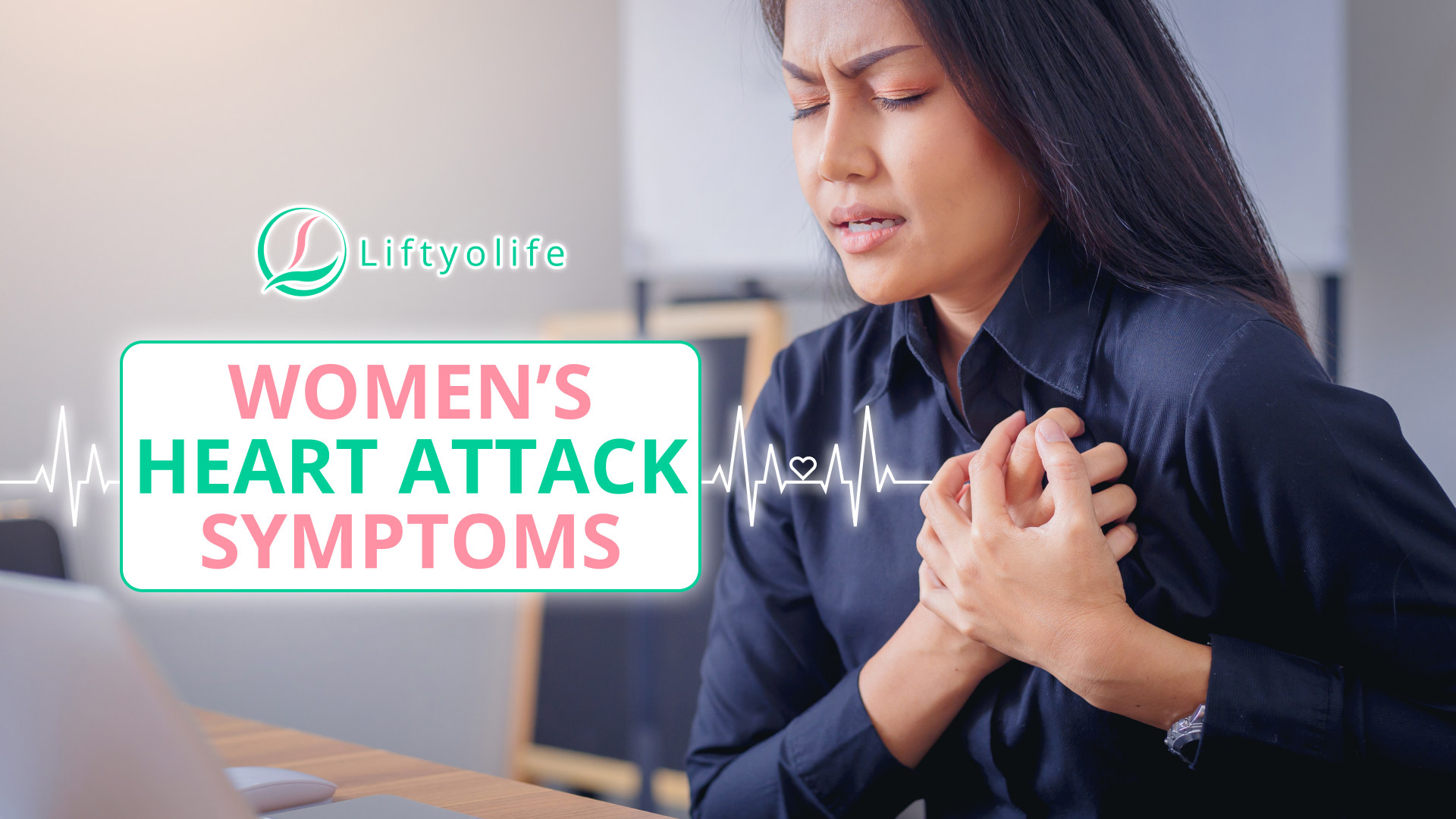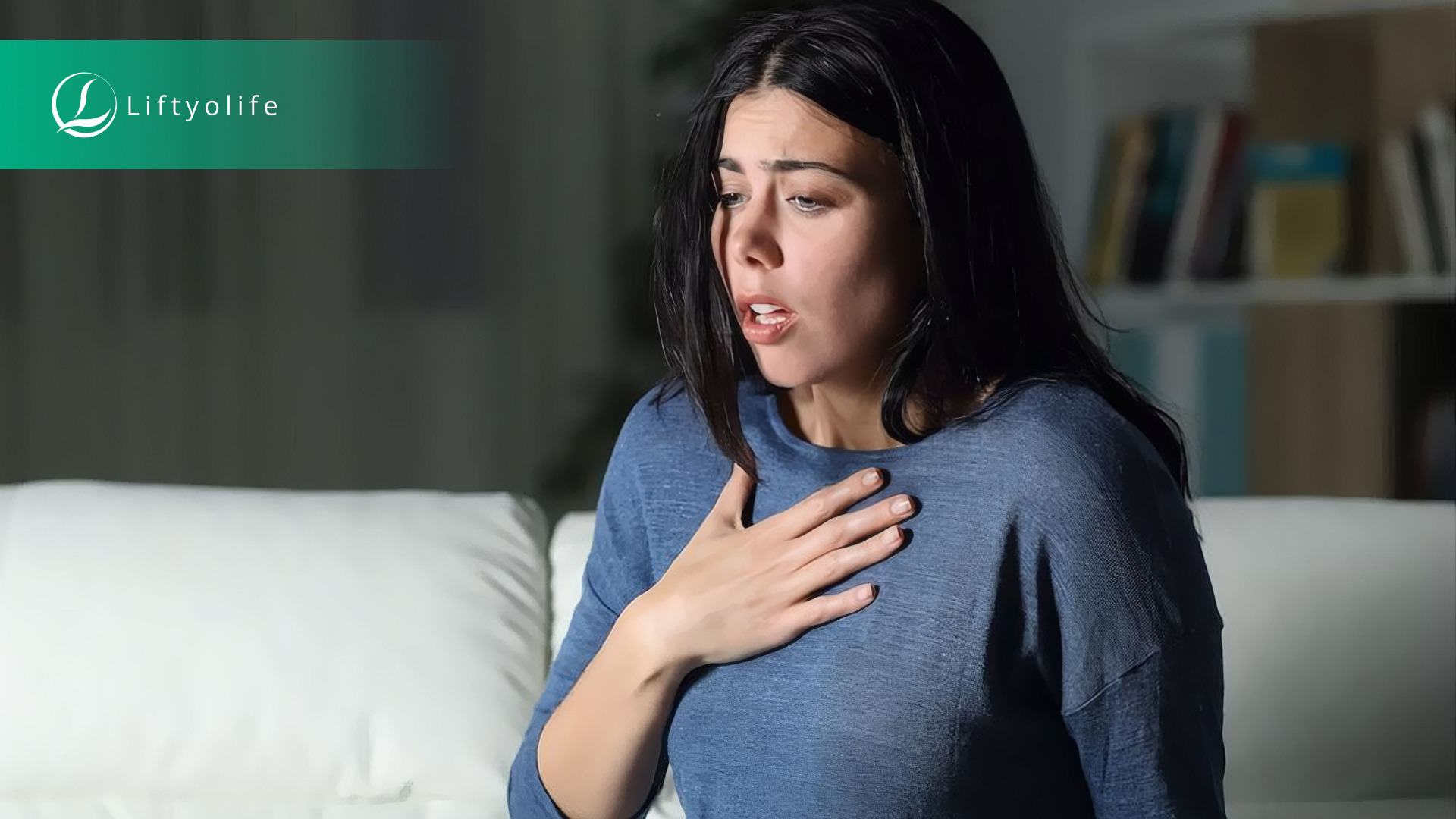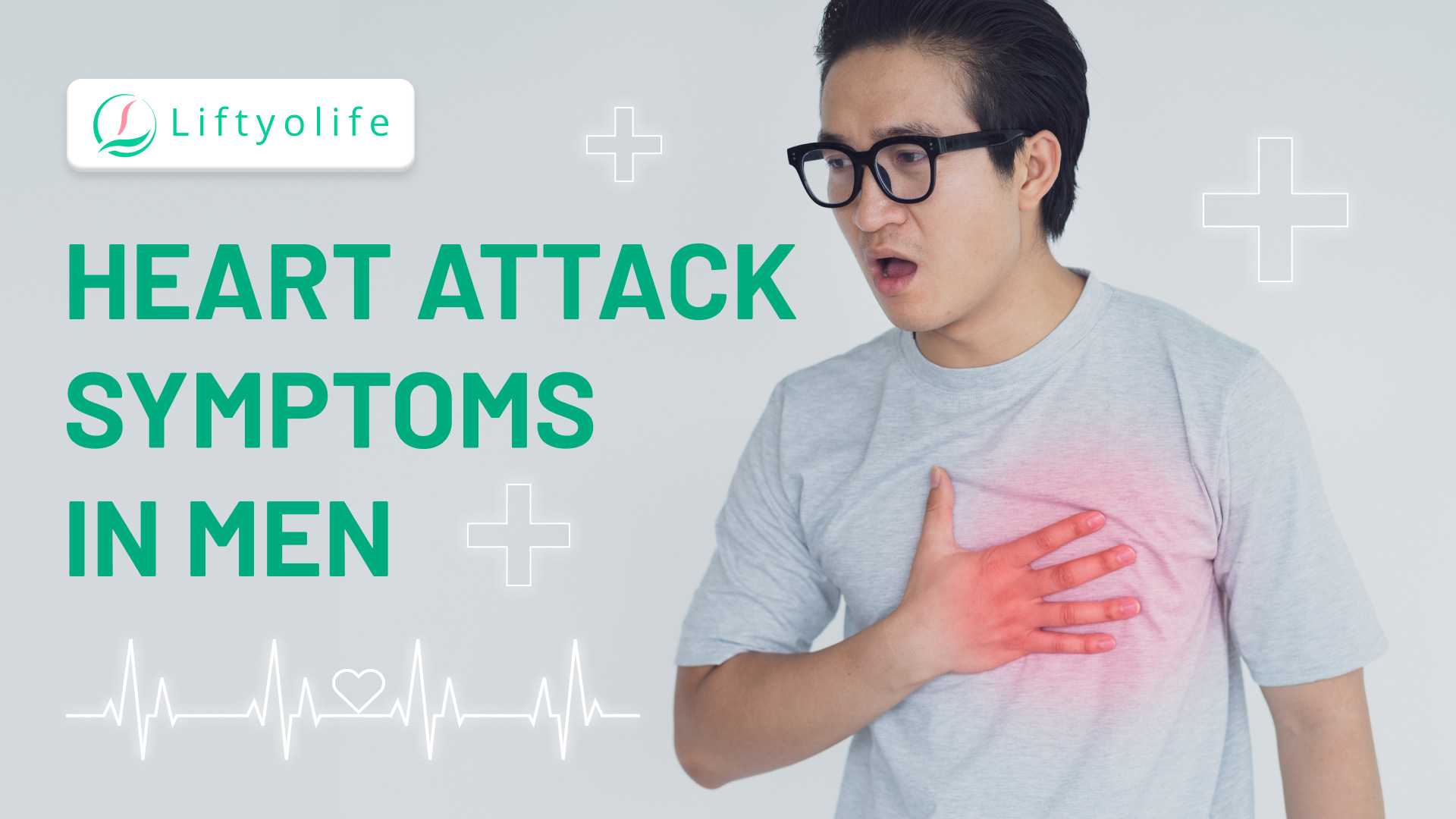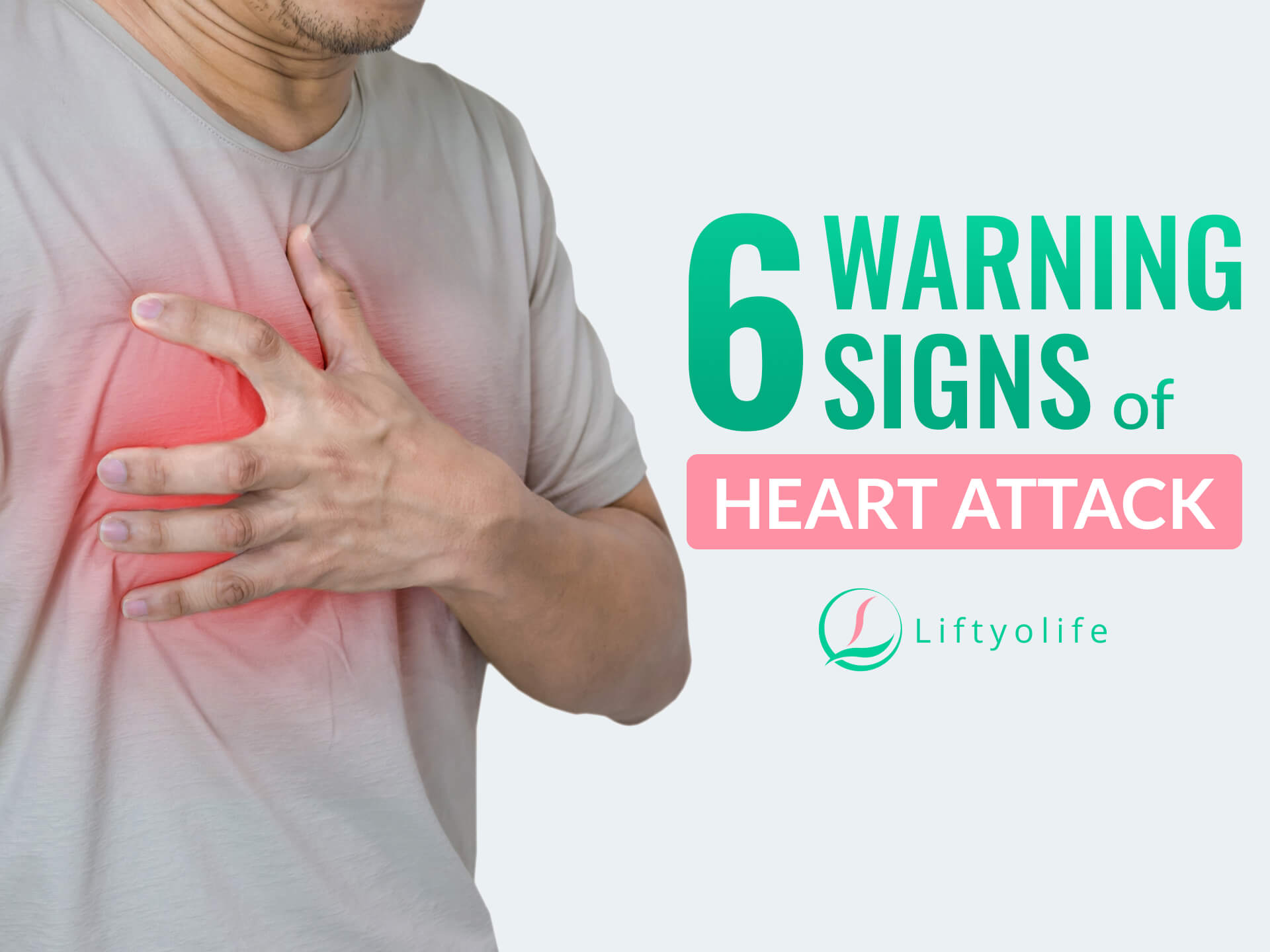Heart Attack Symptoms In Women

Liftyolife (liftyolife.com) is an excellent resource for learning more about common diseases, particularly heart attack symptoms in women. If you notice any signs inside your heart, they are warnings to pay more attention to your heart’s health. Your body wants to send these signals to you, making treatment more accessible. Do not dismiss that voice. It’s time to act before it’s too late. Come with us right away.
1. Heart attack symptoms in women
Despite recent increases in awareness, only about half (56%) of women recognize heart disease as their number 1 killer. Heart disease is the leading cause of death for women in the United States, killing 299,578 in 2017 – roughly one out of every five female deaths (1). That is why early recognition of its symptoms can save your life. Here are 6 signs from your body.
1.1. Unexpected sweating day and night
Many women experience hot flashes during menopause. The reason for this is that pumping blood through clogged arteries requires more effort from your heart, so your body sweats more to maintain an average body temperature during the extra effort. However, sudden or excessive sweating, especially if you are not exercising or being physically active, combined with other symptoms like nausea or chest pressure, can signify a heart attack. If you have cold sweats or clammy skin, you should see your doctor.
When there is no real cause leading to your stress, “stress” sweat (a cold, clammy feeling) or shortness of breath combined with other symptoms, such as chest pain or fatigue, can cause concern.
Night sweats are another common symptom of heart disease in women. Women may misinterpret this symptom as a side effect of menopause. However, if you wake up with soaked sheets or cannot sleep due to excessive sweating, this could signify a heart attack.

Unexpected sweating day and night
1.2. Extreme fatigue
Fatigue is the most popular and bothersome symptom following a myocardial infarction, negatively influencing health-related quality of life (2). Like many other women, you are probably preoccupied with balancing work and family life the majority of the time. As a result, you’re probably tired, which is perfectly normal. However, cardiac fatigue is far more severe and incapacitating.
This means you’re exhausted after your usual exercise routine. For example, you used to be able to walk up a couple of flights of stairs – but now you can barely walk up one, and you can’t walk upstairs without feeling extremely tired. Exhaustion can result from a heart attack due to the extra strain on your heart from trying to pump while an area of blood flow is blocked. If you frequently feel tired or exhausted for no apparent reason, this could indicate that something is wrong.

Extreme fatigue
Fatigue occurs more in women than in men, and it can appear months before a heart attack. That is why, if you notice early signs of fatigue, you should see a doctor as soon as possible.
1.3. Neck, jaw, arm, and back pain
Pain radiating to your jaw, neck, back, or arms may indicate a heart condition, especially if the source is difficult to locate (3). For example, you may experience discomfort but no specific muscle or joint aches. If the pain starts or worsens when you exercise and then goes away when you stop, you should have it checked out.

Neck, jaw, arm, and back pain
1.4. Shortness of breath
This is frequently associated with chest discomfort, but it can also occur before chest discomfort (4). Your breathing and your heart’s ability to effectively pump blood are inextricably linked. Your heart circulates blood to your tissues while also receiving oxygen from your lungs. You may suffer from shortness of breath if your heart cannot adequately pump blood (as in the case of a heart attack).
Shortness of breath is caused by a lack of exercise and gradual weight gain in women as they age. However, in certain circumstances, this can indicate a heart problem. Breathlessness that worsens when lying down and improves when sitting up is also a sign of heart failure, as is breathlessness that worsens over time after exertion. A symptom is feeling suddenly out of breath even if you aren’t exercising.

Shortness of breath
1.5. Stomach pain
People frequently confuse stomach pain that indicates a heart attack with heartburn, the flu, or a stomach ulcer. According to cardiologist Nieca Goldberg, MD, medical director of the Joan H. Tisch Center for Women’s Health in New York, she said at times, women experience severe abdominal pressure that feels like an elephant sitting on their stomach. The pain may spread downward into your abdomen and feel like heartburn.
1.6. Chest pain
Chest pain is the most widespread symptom of a heart attack, but it can manifest itself in various ways. A heart attack’s characteristic chest pain has been described as a sense of pressure, squeezing, fullness, or pain that begins in the center of the chest. The pain or discomfort usually lasts longer than a few minutes, or it may disappear and then return. Sometimes the pain returns hours or even days later. These symptoms could show that your heart muscle isn’t getting enough oxygen.
The pain may radiate down the arms, the back, or the head and neck. Women and men both report chest pain as a primary symptom of a heart attack, but women are more likely than men to experience other symptoms such as nausea, jaw pain, or shortness of breath.
If you or someone nearby experiences chest pains or tightness, call 911 immediately.

Chest pain
2. What to do if you notice heart attack symptoms
If you suspect you may be experiencing heart attack symptoms – and some appear weeks or months before a heart attack – don’t dismiss them or ignore them for too long. The unfortunate fact is that women tend to have more blockages in their hearts when they need something done.
In fact, heart disease may have come into women’s life later than men. Because of the effect of estrogen, women always get it 10 years later.
The sooner you care for this problem, the better your chances of catching it before it turns into a full-fledged heart attack. If you notice all of these symptoms, make a note of them and make an appointment with your doctor as soon as possible.
3. When should you see your doctor?
If you’ve noticed that you’re getting out of breath with regular activity, you should see your primary care physician or a cardiologist. The following are examples of other severe symptoms you should pay attention to:
Severe and unexpected new chest pain or discomfort can occur in the presence or absence of shortness of breath, nausea, sweating, or weakness.
- Fast heart rate (>=150 beats per minute), mainly if they are also short of breath.
- Have shortness of breath that does not go away when you rest.
- Experience sudden weakness or are unable to move their arms or legs.
- Acute, severe headache
- Faint and fall unconscious
When you go to see your doctor, make sure to do the following:
- Bring a list of your symptoms and the times they occur.
- Inform him if there is a family history of heart disease.
- Discuss stress or anything else going on in your life that could be contributing to the problem.
Your doctor will most likely examine you and take your pulse and blood pressure. They may order blood tests to determine whether your heart is damaged.
Everything you hear from your body has significance. Heart attack symptoms in women may be early warning signs or severe warning signs. Listen to them and recognize them as soon as possible in order to identify potential problems and intervene before a heart attack occurs. Don’t forget to subscribe to Liftyolife (liftyolife.com) for more helpful health and beauty information.
==> Read More:






